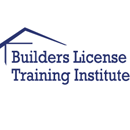Online anytime - 8-Hour Alaska Financial Responsibilities: Effective Business Strategies Continuing Education Online Anytime
Training Provider: Builders License Training Institute
Online anytime
 No Reviews
No Reviews
| TICKET TYPE | PRICE | QUANTITY |
|---|---|---|
|
One Workshop Ticket more info» | $99.00 | |
Or call: 954-400-0595 | ||
Please Note: This course is a pre-recorded online anytime seminar which allows you to be trained and certified at the convenience of your own schedule and in the luxury of your own home! Students will have up to six months of access to course content.
Why Should You Take This 8-Hour Alaska Financial Responsibilities: Effective Business Strategies Continuing Education Online Anytime Course?
This 8-hour Financial Responsibilities Online Anytime Course has been designed to provide new, or growing, business owners a solid foundation in effective financial strategies. The need to keep accurate records, understand basic accounting principles and bookkeeping skills is essential for any business owner. This course will outline these fundamental principles.
Also discussed are ethics, and how to create a formal Code of Ethics or Conduct that will influence the overall culture of the company, as well help bring significant benefits to the success of the company itself.
Finally, a solid ability to utilize computers to streamline and enhance the financial strategies that will move the business forward is critical in today’s landscape. This course will provide students the fundamentals in data organization.
Learning objectives are provided to facilitate student understanding and progress. Incremental assessments (quizzes) appear at the end of each chapter. Students must answer 70% of the questions correctly in order to receive credit/certification for the course.
The Following Topics Will Be Covered:
- Business Principles
- Business Plans
- Legal Structure
- Payroll and Other Tax Registrations
- Payroll, Recordkeeping and Reporting Requirements
- Ethics and Professional Development
- Moral Values and Code of Ethics
- Code of Conduct
- Tax Fraud and Abuse
- Basic Computing and Information Management
What Are The Contractor Licensing Requirements in Alaska?
Alaska state law requires all general contractors to be licensed. Anyone who performs mostly commercial work and residential remodel work of less than 25% of the value of the structure must have a General Contractor License without a Residential Contractor Endorsement. However, anyone who performs new home construction, commercial work, and residential remodel work of more than 25% of the value of the home or structure being altered is required to have a General Contractor License with Residential Contractor Endorsement.
Contractor continuing education is required in Alaska. 16 Hours is required for renewal of a residential contractor endorsement. An applicant for renewal of a residential contractor endorsement for the first time shall document 8 hours of acceptable continued education. Licenses expire December 31 of even number years. Renewal of Endorsement will coincide with renewal of the General Contractor registration.
Get a Residential Contractor Endorsement Application form 08-4161 from:
Department of Commerce, Community and Economic Development Division of Occupational Licensing; Contractors Registration Section PO Box 110806 Juneau, AK 99811-0806
907-465-3035 (Co. name A-K); 907-465-5372 (Co. name L-Z) Fax: 907-465 2974
1. BUSINESS PRINCIPLES
Lesson One: Business Plans (30 minutes)
- Learning Objective: Determine the functional goal of a business, and how a business plan can help attain that goal.
- What should a business plan include?
- Executive Summary
- Developing the Plan
- Priorities
Assessment
Lesson Two: Legal Structure (45 minutes)
- Learning Objective: Identify the types of business entities and structures, including their advantages and disadvantages for operations and financial reporting.
1. Types: Sole Proprietorship, Partnership, Corporation, Limited Liability Company
2. Steps in Forming a Corporation
3. Tax Requirements of each type of entity
Assessment
Lesson Three: Payroll and Other Tax Registrations (15 minutes)
- Learning Objective: Summarize the requirements surrounding business and payroll taxes.
1. Registration with the Federal Government
2. EIN, Form SS-4 and other federal forms
Assessment
Lesson Four: Payroll, Recordkeeping and Reporting Requirements (30 minutes)
- Learning Objective: Understand how the responsibilities involved in payroll, record keeping, and reporting requirements are important to your business.
1. Personnel Forms and Files
2. Payroll Requirements
3. Federal Tax Requirements
Assessment
Lesson Five: Implementing a Bookkeeping System (30 minutes)
- Learning Objective: Be able to develop and apply sound accounting and bookkeeping practices that will support and streamline the business, saving money, time and frustration.
1. Balance Sheet/Income Statement: Assets and Liabilities
2. Cash/Accrual Accounting
3. Journals
4. Bookkeeping Packages
5. Accounting Software
6. Recordkeeping
Assessment
Lesson Six: Other Considerations (30 minutes)
- Learning Objective: Recognize the many other considerations that may impact the financial success of the business; licensing, insurance, allowable deductions, transportation expenses, and more.
1. Licensing
2. Insurance
3. Advisors
4. Start-up Costs
5. Deductions/Expenses
Assessment
Lesson Seven: Frequently Asked Questions of the IRS (30 Minutes)
- Learning Objective: Gain a better understanding of the requirements of the IRS for small businesses, and how to access the IRS.gov website as a valuable resource.
1. Multiple FAQs
Assessment
2. ETHICS AND PROFESSIONAL DEVELOPMENT
Lesson One: The Basics of Ethical Theory (20 minutes)
- Learning Objectives: 1) Understand what is expected from an ethical company or entity. 2) Identify the three main ethical theories. 3) Understand the difference between Internal and External Stake Holders. 4) Understand how unethical behavior can hurt a company or entity.
1. Expectations
2. Ethics, Values and Your Business
3. Three Theories
a. Duty Based Ethics
b. Consequence Based Ethics
c. Virtue Based Ethics
4. Moral Values vs. Ethical Issues in Business
Assessment
Lesson Two: Moral Values and Code of Ethics (20 minutes)
- Learning Objectives: 1) Be able to identify six moral values. 2) Be able to apply moral values when dealing with an ethical dilemma. 3) Understand why a company or entity may need a code of ethics. 4) Understand the role that a code of ethics plays in a company or entity.
1. Six Moral Values: Integrity, Respect for Persons, Justice, Compassion,
Beneficence and Non-Maleficence, Responsibility
2. Code of Ethics
3. CMAA Code of Professional Ethics
Assessment
Lesson Three: Code of Conduct (20 minutes)
- Learning Objectives: 1) Understand the difference between a code of ethics and code of conduct. 2) Be able to identify and define a code of conduct. 3) Be able to define the separate sections of a code of conduct. 4) Understand why a code of conduct is important for your company or entity.
1. Code of Ethics vs. Code of Conduct
2. Code of Conduct
a. Statement of Policy
b. Definitions
c. Standard of Conductd. Obligation to Report Violations and Cooperation
e. Consequences of Violations
Assessment
Lesson Four: Applying Ethics (20 minutes)
- Learning Objectives: 1) Know what the Sarbanes-Oxley act is and who it is for. 2) Understand the relationship between ethics and conscientious work. 3) Understand how ethics applies to financial responsibility. 4) Be able to define commingling of funds.
1. Sarbanes-Oxley Act
2. Industry Concerns
3. Commingling of Funds
4. Remedies
5. Conscientious Work
Assessment
Lesson Five: Ethical Dilemma Application (20 minutes)
- Learning Objectives: 1) Understand what an ethical dilemma is. 2) Be able to understand ethical dilemmas using all three ethical theories. 3) Be able to relate morals and values to ethical dilemmas. 4) Use critical thinking to decide the best option when faced with an ethical dilemma.
1. Case Study: "Smoothing " Company Accounts
a. Consequentialist Ethical Theory
b. Duty Based Ethical Theory
c. Virtue Ethical Theory
2. Theoretical Questions
Assessment
3. TAX FRAUD AND ABUSE
Lesson One: Ethical Implications (30 minutes)
- Learning Objectives: 1) Explore the ethical implications of illegal tax reporting.
1. Gaming the System
2. Rigged Bids
3. Why Does it Matter?
a. Lost Revenue
b. Inflated Insurance/Taxes
c. Underground Economy
Assessment
Lesson Two: Employee vs. Contractor (30 minutes)
- Learning Objectives: 1) Differentiate between contract and independent labor
1. Twenty Factor Test
2. Who is Responsible?
3. Economic Reality Test
Assessment
4. BASIC COMPUTING AND INFORMATION MANAGEMENT
Lesson One (38 minutes)
- Learning Objectives: 1) Understand basic computer systems.
1. Computer Hardware: Hard Disk Drive, CD/DVD, CPU, Graphics Card, PCI Bus, Motherboard, Power Supply
2. Computer Software: Operating System, Anti-Virus Software, Accounting Software, Internet Browser, Business Suite
3. Hardware vs Software Comparison: Tutorial
4. Discovery of System Configuration
Assessment
Lesson Two (25 minutes)
- Learning Objectives: 1) Be able to utilize a computer for basic information organization.
1. Information Management: Outdated info Storage, Electronic File Storage
2. Electronic Data Organization
| COURSE LOGISTICS | |
|---|---|
| Certificates | For live classes, certificates will be issued on day of course completion. |
| Food | No food provided |

The Builders License Training Institute helps thousands of builders and contractors get licensed and complete their continuing education requirements each year. Our courses are builder-friendly and guide you through every step of the process. All of our courses are created by real builders with decades of experience and expertise. Study at your own pace 24/7 from any computer or mobile device.

Questions? 954-400-0595


